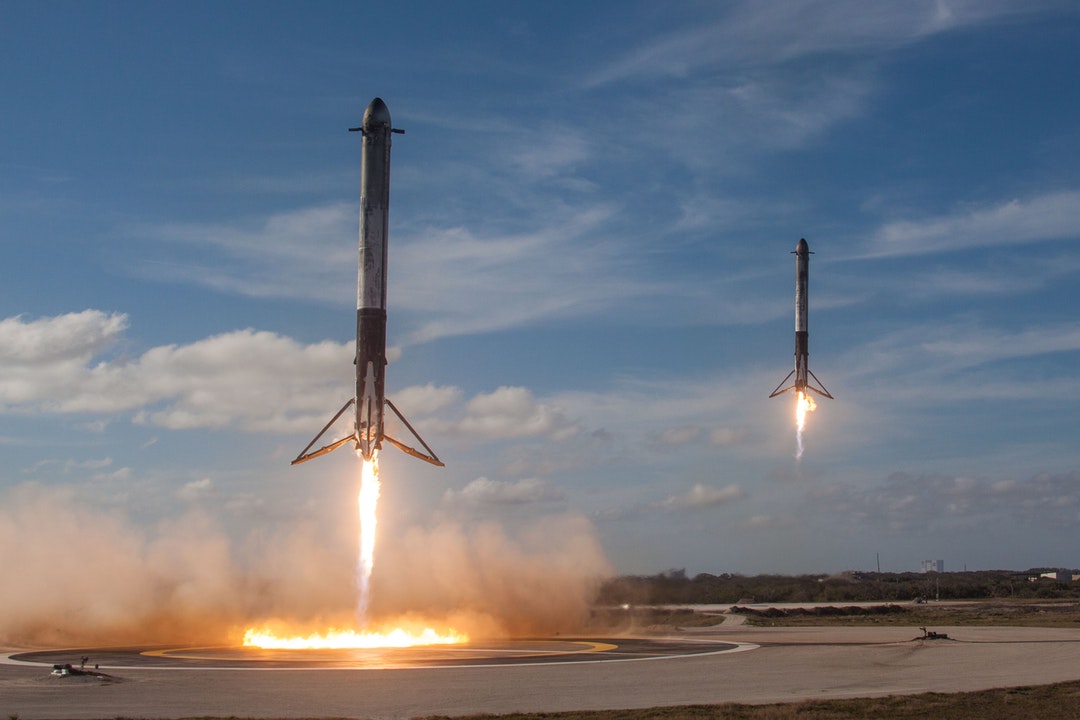Government Grants
Business Grants
Home Owner Programs
Federal Programs
About Us
WINDOWS ON THE UNIVERSE: THE ERA OF MULTI-MESSENGER ASTROPHYSICS
The universe is the ultimate laboratory, and we can now probe it as never before through several powerful and diverse windows – electromagnetic waves, high-energy particles, and gravitational waves.
Each of these windows provides a different view.
Together they reveal a detailed picture
of the Universe that will allow us to study matter, energy, and the cosmos in fundamentally new ways.
The NSF's Big Idea “Windows on the Universe” is implemented through this WoU-MMA program.
WoU-MMA identifies three categories of messengers - electromagnetic waves, high-energy particles including neutrinos and cosmic rays, and gravitational waves.
The goals of WoU-MMA are to build the capabilities and accelerate the synergy and interoperability of the three messengers to realize integrated, multi-messenger astrophysical explorations of the Universe.
The WoU-MMA program welcomes proposals in any area of research supported through the participating divisions that address at least one of the following criteria:
Coordination:
Hardware, software, or other infrastructure to coordinate observations involving more than one messenger.
Observations:
Observations of astrophysical objects or phenomena that are potentially sources of more than one messenger, including the use of existing observatories, experiments, and data archives, as well as the development and construction of new capabilities for advancing multi-messenger astrophysics.
Interpretation:
Theory, simulations and other activities to understand or interpret observations of astrophysical objects that are sources of more than onemessenger.
The WoU-MMA program focuses on three broad areas of investment:
Enhancing and accelerating the theoretical, computational, and observational activities within the scientific community:
Proposals for support of the scientific community to build the observational and analysis capabilities in each of the three window areas, integrate the different research communities to develop full interoperability between the three windows, and develop a new workforce that is skilled in this new paradigm.
These efforts should expand ongoing activities with priority given to PI and small group awards that advance the goals and accelerate progress in multi-messenger astrophysics.
Proposals should be submitted to the relevant programs listed below.
These include the Astronomy and Astrophysics Postdoctoral Fellowships (AAPF) program, the Astronomy and Astrophysics Research Grants (AAG), and the Advanced Technologies and Instrumentation (ATI) programs within AST, and all PHY and OPP programs listed below.
Building dedicated midscale experiments and instrumentation:
Proposals for the construction of experiments and instrumentation in the midscale project range that will make critical contributions to the multi-messenger research infrastructure by enabling new capabilities in energy range or sky coverage, improved sensitivity, or new computational capabilities.
Proposals for support of midscale projects that are primarily focused on the electromagnetic spectrum within the purview of AST should be submitted to the MSIP program.
Proposals for support of midscale projects that are primarily focused on high energy particles or gravitational waves should be submitted to the relevant program within PHY.
Proposals that include facilities located in Antarctica must list OPP’s Antarctic Astrophysics and Geospace Sciences (AAGS) as a secondary program.
Exploiting current facilities and developing the next generation of observatories:
Proposals for support of enhanced infrastructure and modest upgrades that will enable the full utilization of the current generation of multi-messenger facilities, and proposals requesting support for the planning and development for the next generation of observatories to accelerate progress to realize significantly greater capabilities and extend our scientific reach.
Proposals should be submitted to the relevant programs listed below.
The WoU-MMA program is not intended to replace existing programs that make awards that involve experimental or theoretical efforts related to each of the three messengers.
Rather, the WoU-MMA program is meant to fund awards that have significant components of multi-messenger astrophysics.
PIs should ask for consideration and review as a WoU-MMA proposal only if the proposal addresses at least one of the criteria listed above.
Any proposal submitted to the WoU-MMA program that does not satisfy at least one of the criteria listed above will be reviewed within the context of the individual program.
A proposal that is requesting consideration within the context of WoU-MMA should begin the title with the identifying acronym "WoU-MMA:" Supplement requests to existing awards within a program that address one of the points above will also be considered.
Each of these windows provides a different view.
Together they reveal a detailed picture
of the Universe that will allow us to study matter, energy, and the cosmos in fundamentally new ways.
The NSF's Big Idea “Windows on the Universe” is implemented through this WoU-MMA program.
WoU-MMA identifies three categories of messengers - electromagnetic waves, high-energy particles including neutrinos and cosmic rays, and gravitational waves.
The goals of WoU-MMA are to build the capabilities and accelerate the synergy and interoperability of the three messengers to realize integrated, multi-messenger astrophysical explorations of the Universe.
The WoU-MMA program welcomes proposals in any area of research supported through the participating divisions that address at least one of the following criteria:
Coordination:
Hardware, software, or other infrastructure to coordinate observations involving more than one messenger.
Observations:
Observations of astrophysical objects or phenomena that are potentially sources of more than one messenger, including the use of existing observatories, experiments, and data archives, as well as the development and construction of new capabilities for advancing multi-messenger astrophysics.
Interpretation:
Theory, simulations and other activities to understand or interpret observations of astrophysical objects that are sources of more than onemessenger.
The WoU-MMA program focuses on three broad areas of investment:
Enhancing and accelerating the theoretical, computational, and observational activities within the scientific community:
Proposals for support of the scientific community to build the observational and analysis capabilities in each of the three window areas, integrate the different research communities to develop full interoperability between the three windows, and develop a new workforce that is skilled in this new paradigm.
These efforts should expand ongoing activities with priority given to PI and small group awards that advance the goals and accelerate progress in multi-messenger astrophysics.
Proposals should be submitted to the relevant programs listed below.
These include the Astronomy and Astrophysics Postdoctoral Fellowships (AAPF) program, the Astronomy and Astrophysics Research Grants (AAG), and the Advanced Technologies and Instrumentation (ATI) programs within AST, and all PHY and OPP programs listed below.
Building dedicated midscale experiments and instrumentation:
Proposals for the construction of experiments and instrumentation in the midscale project range that will make critical contributions to the multi-messenger research infrastructure by enabling new capabilities in energy range or sky coverage, improved sensitivity, or new computational capabilities.
Proposals for support of midscale projects that are primarily focused on the electromagnetic spectrum within the purview of AST should be submitted to the MSIP program.
Proposals for support of midscale projects that are primarily focused on high energy particles or gravitational waves should be submitted to the relevant program within PHY.
Proposals that include facilities located in Antarctica must list OPP’s Antarctic Astrophysics and Geospace Sciences (AAGS) as a secondary program.
Exploiting current facilities and developing the next generation of observatories:
Proposals for support of enhanced infrastructure and modest upgrades that will enable the full utilization of the current generation of multi-messenger facilities, and proposals requesting support for the planning and development for the next generation of observatories to accelerate progress to realize significantly greater capabilities and extend our scientific reach.
Proposals should be submitted to the relevant programs listed below.
The WoU-MMA program is not intended to replace existing programs that make awards that involve experimental or theoretical efforts related to each of the three messengers.
Rather, the WoU-MMA program is meant to fund awards that have significant components of multi-messenger astrophysics.
PIs should ask for consideration and review as a WoU-MMA proposal only if the proposal addresses at least one of the criteria listed above.
Any proposal submitted to the WoU-MMA program that does not satisfy at least one of the criteria listed above will be reviewed within the context of the individual program.
A proposal that is requesting consideration within the context of WoU-MMA should begin the title with the identifying acronym "WoU-MMA:" Supplement requests to existing awards within a program that address one of the points above will also be considered.
Related Programs
National Science Foundation
Mathematical and Physical Sciences
National Science FoundationNational Science Foundation
Agency: National Science Foundation
Office: National Science Foundation
Estimated Funding: $46,000,000
Office: National Science Foundation
Estimated Funding: $46,000,000
Who's Eligible
Obtain Full Opportunity Text:
NSF Program Desccription PD-18-5115
Additional Information of Eligibility:
*Who May Submit Proposals: Proposals may only be submitted by the following: - Ph.D.
granting Institutions of Higher Educationaccredited in, and having a campus located in the US, acting on behalf of their faculty members.
*Who May Serve as PI: DDRI proposals must be submitted with a principal investigator (PI) and a co-principal investigator (co-PI).
The PI must be the advisor of the doctoral student or another faculty member at the U. S. IHE where the doctoral student is enrolled.
The doctoral student whose dissertation research will be supported must be designated as a co-PI.
There is no limitation on the number of times that an individual may be the principal investigator on a DDRI proposal or proposals submitted to the Sociology Program, either during a specific competition or over the course of her/his career.
There isno limitation on the number of times a doctoral student may serve asco-PI on aDDRI proposal to the Sociology Programprovided the student meets the eligibility criteria.
A student and her/his advisor, however, should carefully consider the times during the student's graduate program that are most appropriate for submission of a DDRI proposal.
Proposals will only be accepted in the Sociology Program's Spring DDRI competition if they were submitted to a Fall competition, were declined,and received an invitation to resubmit.
The invitation to resubmit will be included in the panel summary.
Full Opportunity Web Address:
http://www.nsf.gov/funding/pgm_summ.jsp?pims_id=505593
Contact:
Agency Email Description:
If you have any problems linking to this funding announcement, please contact
Agency Email:
Date Posted:
2018-08-01
Application Due Date:
Archive Date:
2023-11-01
Social Entrepreneurship
Spotlight
Calgary Social Enterprise Offers High-Tech Services by People with Autism

Meticulon, a project of Autism Calgary Association in partnership with the federal government and the Sinneave Family Foundation, operates as a social enterprise that renders high-tech services provided by people with autism, leveraging their natural abilities at requiring attention to detail, repetition, and sequencing.

